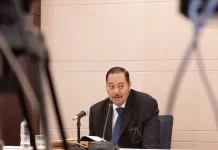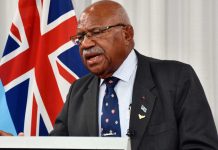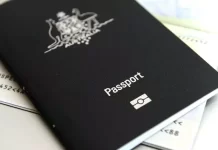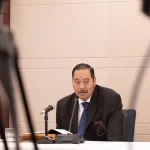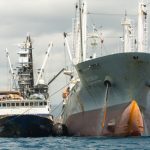The collapse of France’s government has thrown New Caledonia into fresh uncertainty as it tries to recover from its worst civil unrest in decades.
Hopes for a quick injection of financial support for rebuilding efforts are in limbo while leaders in New Caledonia wait for a successor to prime minister Michel Barnier.
Barnier’s government lost a motion of no confidence in Paris last Wednesday after three months in power.
France’s political upheaval is also expected to delay a new round of crucial talks over New Caledonia’s future, following months of riots and blockades in the French territory.
There are fears that without a new political agreement by March, New Caledonia risks more economic ruin.
And some say while it’s still possible to negotiate a new deal by that deadline, France’s next national government will be just as prone to collapse as the last, creating more obstacles for negotiations.
Months of violent unrest have left New Caledonia’s economy in tatters, and it’s estimated to need 4 billion euros ($4.22 billion) to recover.
Pro-independence Party of Kanak Liberation representative Jimmy Naouna said his party had hoped the Barnier government would deliver a budget providing financial support to help rebuild the New Caledonian economy.
“A lot of people have lost jobs, businesses have been closed down, so there’s a big financial burden for New Caledonia to rebuild the economy,” he said.
New Caledonian leaders had spent months lobbying Paris for more economic support to rebuild the territory.
But the end of the Barnier government means that financial support won’t come soon.
Journalist Nic Maclellan, who has covered New Caledonia for more than 30 years, said the Barnier government’s proposed budget for 2025 was now void, delaying additional financial support that would have helped reconstruct the territory’s economy.
“That’s a disaster for a prompt response to the economic crisis that’s wracked the Pacific dependency,” he said.
The proposed support included a loan guarantee underwriting budgetary decisions of the New Caledonian local government, and tax write-offs for people investing in New Caledonia.
“All of these are now in limbo because the government has collapsed,” Maclellan said.
“The 2025 budget must still be renegotiated between political forces in Paris, and Christmas is coming.
“Time is very short given the immediate and urgent needs facing the people of New Caledonia.”
But New Caledonia Chamber of Commerce and Industry president David Guyenne says there are still some reasons to feel relief.
The French government earmarked funding for the territory’s public services before it collapsed, he said.
“It was a big relief for us,” Guyenne said.
After the Barnier government formed in September, it sent officials to New Caledonia seeking to restart talks with pro-independence and anti-independence groups on a new agreement to replace the Nouméa Accord.
Meanwhile, tensions had calmed following months of violence that led to 13 deaths — the worst civil unrest in the territory since the 1980s.
Parties were readying to resume negotiations in what would have been an important milestone towards achieving a new lasting peace in the French territory.
“This latest crisis obviously blows that out of the water,” Maclellan said.
“Even though supporters and opponents of independence have all pledged to come back to the negotiating table, who are they negotiating with? Who will make up the new government of Paris?”
The political crisis in Paris is expected to delay the talks over New Caledonia’s future political status — despite a looming deadline to reach an agreement.
With local elections due in November next year, parties were aiming to reach a deal by March.
Naouna said with the end of the Barnier government, and as France’s parliament attempts to form a new government, talks likely won’t begin until January.
“That leaves us only two months before reaching an agreement, which is feasible, but as long as everyone puts in good political will to reach that agreement,” he said.
But the make-up of the new French parliament, where parties only have enough seats to cobble together minority governments, means another collapse is possible.
Naouna said it’s a realistic prospect.
“We’re just going into a cycle of instability in Paris in terms of forming a government,” he said.
“It’s not the best situation for us because we need to have a stable government with whom to negotiate on the political process beyond the Nouméa Accord.”
Guyenne said New Caledonia’s overall recovery will rely on a new political agreement between pro-independence and anti-independence groups.
“Companies and entrepreneurs will not invest in reconstruction of all the enterprises that were destroyed if there is no stability,” he said.
He said the crisis in Paris will require New Caledonia’s political parties to stay committed to reaching an agreement on the territory’s future, when talks begin.
“We can’t control the situation in Paris, but we can control the situation in New Caledonia,” he said.
“So, we are now really pushing hard on politicians to get together and find an agreement, because for us, if no agreement is found by March, then we really fear that the economy might fall and it will be a systemic fall, for not just the businesses but also [with] social consequences.
“The consequences are so vast and so dire that we need New Caledonians to act where they have levers.
“And so, politicians have the ability and have the responsibility to find an agreement,” Nouna said.



